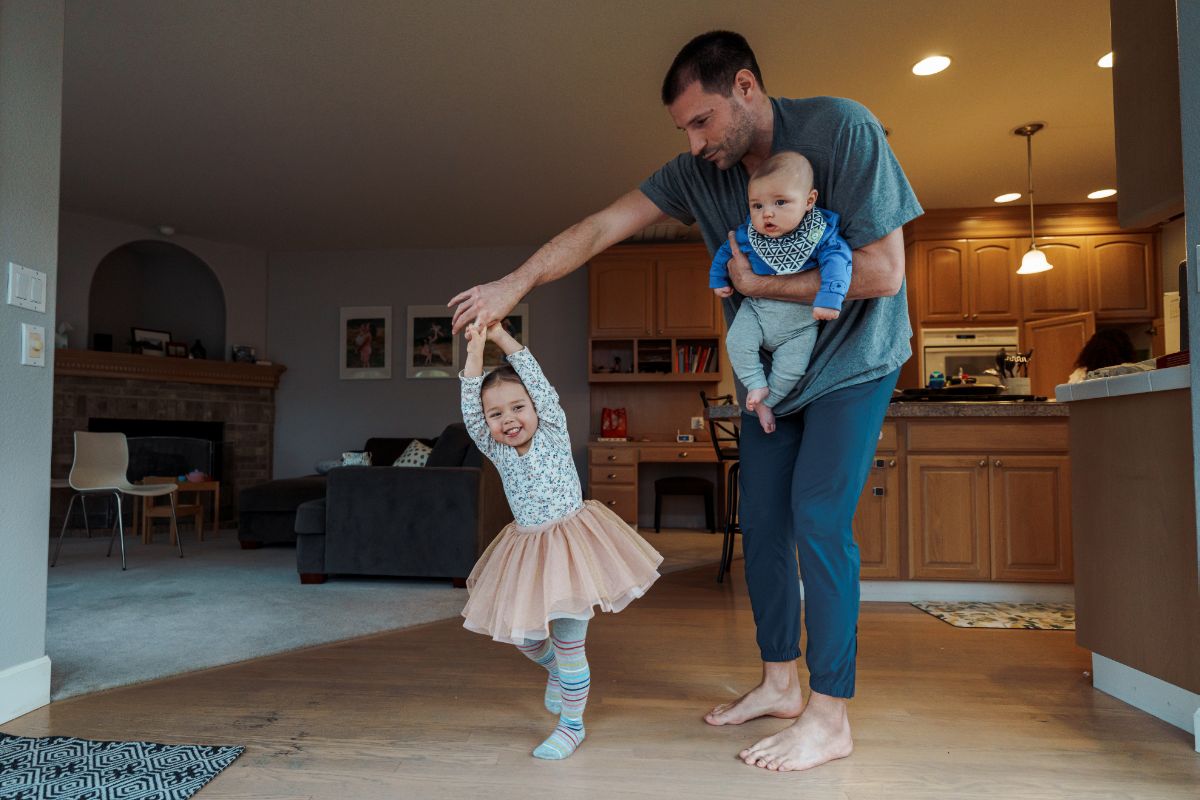Millennial Dads Are Redefining Fatherhood—But the Workplace Hasn’t Caught Up
Millennial Dads: A New Era of Fatherhood
Fatherhood in the 21st century looks radically different than it did just a few decades ago. In 1965, American fathers devoted, on average, just 2.5 hours per week to childcare. Today, millennial dads spend nearly eight hours per week on the same responsibilities—an increase that reflects more than just a shift in routine. It signals a cultural transformation.
Unlike previous generations, millennial fathers see parenting not as an auxiliary role, but as a central part of who they are. In fact, 57% of millennial dads say that being a parent is a key part of their identity, a figure nearly identical to that of mothers.

This evolution challenges the outdated archetype of fathers as distant breadwinners, emotionally and physically detached from daily family life. Instead, millennial dads are striving to embody a new model—hands-on, nurturing, and fully present.
From Provider to Partner
One of the most striking differences between millennial fathers and their predecessors is the emphasis on partnership. Rather than viewing childcare as a mother’s domain, many millennial dads are embracing shared responsibilities. Diaper changes, late-night feedings, school runs, and playdates are no longer seen as “helping mom,” but as integral fatherly duties.
Social shifts have played a major role in this transformation. With more women pursuing higher education and careers, the traditional family model of a sole male provider has given way to more dual-income households. This has required fathers to step up, but for many millennials, it’s more than obligation—it’s a choice rooted in values.
Surveys show that millennial men often rank time with family higher than time at work, reflecting a generational shift in priorities. While baby boomer and Gen X fathers might have measured success primarily through career advancement, millennial dads are equally likely to measure it in bedtime stories, soccer practices, and family dinners.
The Identity Factor
The rise of engaged fatherhood isn’t simply about sharing chores. It’s deeply tied to identity. For millennial dads, fatherhood has become a defining element of who they are.
This change is visible in popular culture. Social media is filled with accounts run by “dadfluencers” who showcase everything from cooking dinner to baby-wearing techniques. Ads now feature fathers as caretakers and nurturers, not just as providers. Fatherhood is no longer a supporting role—it’s part of the spotlight.
Yet, this redefined sense of identity also carries challenges. As fathers embrace caregiving more fully, they often encounter resistance from systems that haven’t evolved at the same pace.
The Workplace Tug-of-War
Despite all this progress, the workplace remains stuck in older expectations. Many companies continue to reward men who prioritize work above all else while penalizing those who take time for caregiving.
Paternity leave in the U.S. is notoriously limited, with most fathers receiving either a few weeks—or none at all. Even when policies exist, workplace culture often discourages men from taking full advantage. The unwritten rule still suggests that a “real man” prioritizes his job, leaving caregiving to women.
This puts millennial dads in a difficult position. They want to be active, present fathers, but they are also navigating professional environments that remain rigidly tied to the breadwinner ideal. The result? Many fathers feel caught between their desire to nurture and their obligation to provide.
Studies show that millennial dads report higher levels of stress around work-life balance compared to previous generations. They are more likely to feel “pulled in every direction,” struggling to live up to both professional and family expectations.
Why It Matters
The redefinition of fatherhood has implications far beyond individual households. When dads are actively involved in childcare, research shows that children benefit in measurable ways—academically, emotionally, and socially. Fathers who nurture and engage help raise more empathetic, resilient kids.
Mothers benefit too. With fathers taking on more childcare responsibilities, women gain greater flexibility to pursue careers, passions, or simply share the mental load that has historically fallen almost entirely on their shoulders.
From a societal perspective, millennial dads are pushing for a cultural realignment—one that values caregiving as much as career achievement. But unless workplace policies evolve, this progress will remain incomplete.
Looking Ahead: The Next Chapter of Fatherhood
As millennials continue to dominate the parenting landscape, their approach to fatherhood will likely influence future policy debates. Calls for expanded paternity leave, flexible work schedules, and more family-friendly corporate policies are gaining traction.
If the workplace can evolve to support this new model of engaged fatherhood, the benefits could be transformative—not just for dads, but for families, workplaces, and society as a whole.
For now, millennial dads are leading by example. They’re changing diapers, packing lunches, and reading bedtime stories at rates that would have seemed unimaginable just a few decades ago. In doing so, they are proving that fatherhood isn’t just about being present in the home—it’s about being present in the heart.